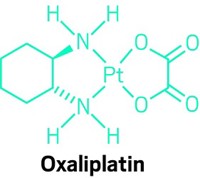Advertisement
Grab your lab coat. Let's get started
Welcome!
Welcome!
Create an account below to get 6 C&EN articles per month, receive newsletters and more - all free.
It seems this is your first time logging in online. Please enter the following information to continue.
As an ACS member you automatically get access to this site. All we need is few more details to create your reading experience.
Not you? Sign in with a different account.
Not you? Sign in with a different account.
ERROR 1
ERROR 1
ERROR 2
ERROR 2
ERROR 2
ERROR 2
ERROR 2
Password and Confirm password must match.
If you have an ACS member number, please enter it here so we can link this account to your membership. (optional)
ERROR 2
ACS values your privacy. By submitting your information, you are gaining access to C&EN and subscribing to our weekly newsletter. We use the information you provide to make your reading experience better, and we will never sell your data to third party members.
Safety
FDA Changes Advisory Panel Policy
Agency proposes stricter procedures to avert potential conflicts of interest
by Glenn Hess
March 23, 2007
The Food & Drug Administration has issued new draft guidelines that set more stringent standards for participation on its advisory committees and are aimed at eliminating potential conflicts of interest among panel members.
The proposal, announced March 21, follows a barrage of recent criticism about the agency's performance from the Institute of Medicine, some members of Congress, and consumer activists.
Under its current policy, established in 2000, FDA screens prospective advisory committee participants before each meeting to determine whether the potential for a financial conflict of interest exists. But agency officials say they have found it difficult to achieve consistent results that the public could readily understand because of the complexity of the screening criteria.
"FDA is committed to making the advisory committee process more rigorous and transparent so that the public has confidence in the integrity of the recommendations made by its advisory committees," says Randall Lutter, FDA's acting deputy commissioner for policy.
The draft guidelines, Lutter says, "should provide more consistency in the consideration of who is eligible to participate in advisory committee meetings and would simplify the process."
Financial conflicts are an important area in which FDA is simplifying its eligibility requirements. Under the new guidelines, if an individual has disqualifying financial interests whose combined value exceeds $50,000, the person would generally not be considered for participation in the meeting, regardless of the need for his or her expertise. Under the old system, a complicated waiver process was used to determine eligibility.
Financial interest means the potential for gain or loss as a result of the agency's action on a particular drug or medical device. Such interests may include stock ownership or consulting arrangements with a company whose product is being discussed.
Rep. Maurice Hinchey (D-N.Y.), who has introduced legislation to prevent conflict-of-interest waivers from being issued for FDA advisory panel members, applauded the change, which will become final after a 60-day public comment period.
"By ending the practice of allowing FDA advisory boards to be filled with voting members who have financial conflicts of interest, the agency is taking an important step toward ensuring that the only interest advisory board members have when voting to approve a drug or device is that of the health and safety of American consumers," Hinchey says.
Advisory committees provide FDA with independent advice from outside experts on issues related to human and veterinary drugs, biological products, medical devices, and food. The committees' recommendations are not binding, and FDA officials make the final decisions.



Join the conversation
Contact the reporter
Submit a Letter to the Editor for publication
Engage with us on Twitter